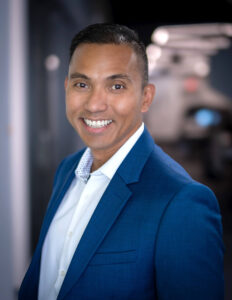|
Getting your Trinity Audio player ready...
|
The Unburdened Founder: Finding Freedom in Operational Excellence

Every founder experiences the exhilarating rush of building something new. However, this initial energy often gives way to overwhelm as daily operations become overbearing.
This article shares the journey of a Collective 54 member who met this juncture and found a path forward. Names and specific details are omitted to focus on universal lessons that echo the struggles many others face.
When “Doing It All” Becomes Unsustainable
“Things just were not getting done,” the founder confessed, admitting to taking their “eye off the ball for the things that were most important”.
Critical areas like new business development and nurturing talent suffered. The founder was overworked and increasingly disconnected from their purpose. This external struggle masked a deeper realization: the need for change.
“There’s just no smart pathway to growth by just throwing more effort at it,” they realized. “I was working constantly, and I was just not happy. And I knew it had to change.”
|
Self-Assessment: Consider if these statements resonate with your experience:
|
Learning from Failed Solutions
When facing operational challenges, it’s natural to hire someone to take on the problem. Yet, finding the right support isn’t always straightforward.
“I made an early full-time hire that was not a good fit because he had an overinflated view of his worth… he didn’t understand what a partnership really looked like,” the founder reflected.
This taught the founder that simply adding headcount isn’t enough; finding someone with the right temperament, collaborative understanding, and seasoned perspective is crucial.
The Turning Point
A conversation with Collective 54’s Jeff Klaumann sparked a new idea: consider fractional operational support.
The founder realized, “a lot of us are trained to hire salespeople first. I think that’s backwards. I think you should have somebody come in and start running the business.” The rationale was clear: a founder cannot effectively focus on growth if their mental energy is constantly consumed by day-to-day operations.
The decision to prioritize operations was based on this comparison:
|
Dimension |
Traditional Sales-First |
Operations-First Approach |
|
Founder’s Focus |
Split between sales/operations |
Freed for strategic growth |
|
Scalability |
Limited by operational bottlenecks |
Built on systematic foundation |
|
Best For |
Strong operations, limited reach |
Strong market opportunity |
Following this shift in thinking, the founder hired me, and I began serving in a fractional capacity. Our success as “the 2 at the top” has been anchored around these key elements:
Compatibility: “I could do the things that you do. You could do the things that I could do. But that isn’t what makes it work,” the Founder said. “You let me be me. You didn’t come in trying to overcoach me. You shared my perspective: let’s implement ways to be better at what we do”.
Collaboration: “Was there some level of skepticism? No, I felt relief. I think I take coaching well. I believe it’s a superpower”. The founder’s openness to coaching allows ego to be set aside and for progress to take shape through the exchange of new perspectives.
Outcome-focused Goals: An early commitment to transition the founder out of day-to-day operations by year-end created a clear target and resonated deeply with the founder’s aspiration to work as the “visionary”.
Structured Methodologies: To achieve the above, we implemented essential frameworks like EOS and identified crucial tools like a PSA system to create operational clarity.
Image: Visual representation of workload instability. John was experiencing burnout, but unsure how to ask for help. A resource planning tool makes it easy to visualize the demand and reschedule or distribute work, so the load is shared between John and Daenerys.
The Early Returns
Three months into this relationship, qualitative returns are evident. The founder has reclaimed time for high-value strategic initiatives and business development.
“I wouldn’t have been able to focus on scaling the company if you aren’t here doing the things that you are doing,” they noted. Tools like an accountability chart proved transformative. “People are energized. I think our people like what we’re doing.”
Team members experienced a reawakening, taking greater ownership and expanding roles. One is now handling analytical work, helping with hiring, and AI process improvements. Another is more involved in the customer journey and process enhancements.
Most profoundly, the founder experienced a fundamental shift and is energized.
“I learned I needed a partner.” This shift from isolation to partnership created space for renewed purpose. “I don’t think I’ve ever had more purpose in my life… I’m working more on the stuff that matters, the stuff that I should be doing.”
While financial metrics are the ultimate measure, these intermediate indicators often precede both revenue growth and increased valuation.
|
Reflection Questions for Your Journey
|
Looking Forward
The journey from operator to visionary is profound. It requires a shift in perspective and working with the right yin to your yang. As you reflect on the questions above, consider how operational clarity could redefine your role and unlock your business’s true potential and exit value.
For our featured founder, the path to becoming a visionary leader started with recognizing when “doing it all” was no longer sustainable and by taking action to make his journey more rewarding.
